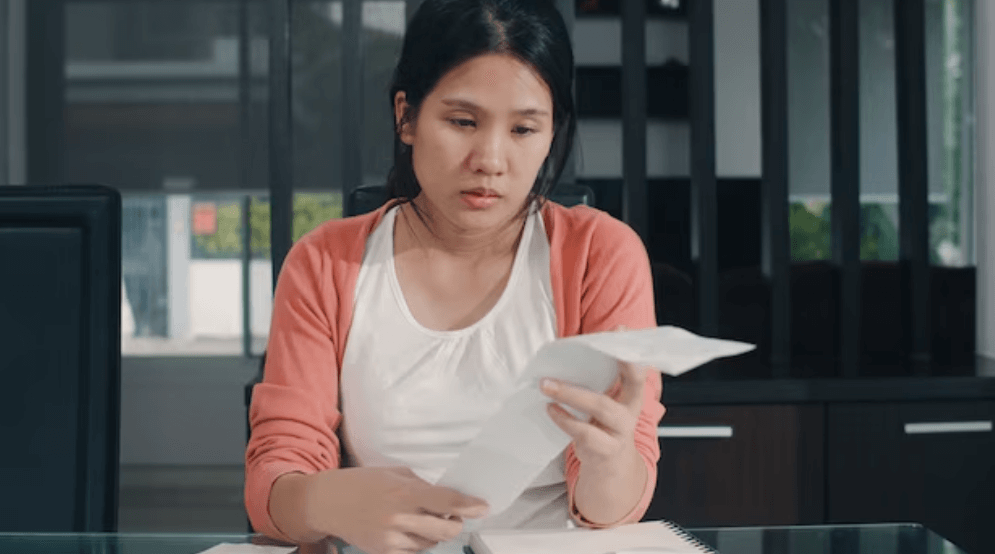How to Pay Taxes as a Freelancer in Philippines
Key takeaways:
- Freelancers must register with the BIR as self-employed individuals
- Freelancers are subject to income tax (quarterly and annually) and either percentage tax or VAT (monthly) based on their earnings
- The income tax rate is between 3% and 8%
- Freelancers are subject to VAT if the income for a year exceeds ₱3 million
- Earnings from foreign clients are taxable in the Philippines
Table of Contents

Does a freelancer need to pay tax in the Philippines? Freelancers in the Philippines must pay their taxes — some people think that because they are not officially employed, they are also exempt from paying taxes. However, this couldn’t be farther from the truth.
If you are a law-abiding citizen, chances are you want to pay freelancer tax in the Philippines, even if it is unlikely for the government to catch you. If so, you have come to the right place, as we will tell you everything you need to know about Philippine taxes for freelancers.
- Get up to ₱25,000 in few minutes
- Apply with only 1 Valid ID

Tax for Freelancers in the Philippines in 2024
Freelancers are generally considered as “self-employed” individuals and are classified under the category of “professionals” by the Bureau of Internal Revenue (BIR) in the Philippines. They are required to register with the BIR and pay taxes based on their income.
Tax obligations for freelancers include:
Income Tax: Freelancers can opt to pay tax under the graduated rates (which range from 0% to 35%, depending on your taxable income) or the 8% flat rate based on gross sales or receipts (applicable if gross sales do not exceed PHP 3,000,000).
Percentage Tax (if applicable): Freelancers whose earnings do not exceed PHP 3,000,000 annually and are not VAT-registered are subject to 3% percentage tax.
Value Added Tax (VAT): If a freelancer’s gross sales/receipts for the past 12 months exceed PHP 3,000,000, they must register as a VAT taxpayer. They will then be liable to pay 12% VAT.
Quarterly and Annual Income Tax Returns: Freelancers are required to file and pay quarterly income tax returns. Additionally, an annual income tax return should be filed.
Other Compliance: Aside from the taxes, freelancers are also mandated to issue official receipts, keep registered books of accounts, and maintain other compliance requirements set by the BIR.
Learn information
How to Get Loan for Freelancers in the Philippines
How to Register as a Freelancer Taxpayer in the Philippines
You can register as a taxpayer in the Philippines in two ways. The first is to register as a business entity, in which case you will register as a sole proprietorship business.


Registering Tax for Freelancers Philippines
The second method is to register as a freelancer. Below are the steps.
- Go to the BIR office in your region and tell the guard that you will register as a freelancer
- Get a form 1901 and fill it out; select delf-employed or Mixed Income Individuals
- Pay the Annual Registration Fee
At this point, the BIR personnel will tell you to attend a seminar on a specific date. You must attend this seminar as they will teach you what to do and how to do it. After that, you will receive your books and your tax identification number or TIN.
In the application process, you must tell the BIR personnel that you do not have a tax ID yet. You will receive another form, which is Form 1905. This is the form you need to fill out to get a tax number. If you already have a TIN, you do not have to get a form 1905.
You will also fill out form 1906. This is your application to be given the authority to print receipts. Once these documents have been approved, you must find an accredited printing press and then have them print your receipts.
Finally, once you have the receipts, you can go back to the BIR for your books—they will also be validated if your receipts are legitimate.
All these steps are tedious. You could have used the time to work and earn money. If you are a freelancer with a high income, we suggest that you hire an accountant who will process all these documents for you. Accountants charge between ₱2,000 and ₱5,000 to process everything for you.
Whatever it is that you do, you should not get a bookkeeper. These people are not licensed to process accounting documents— there are many cases where the bookkeeper did not file the taxes properly.

Value Added Tax (VAT) for Freelance Tax
One issue with taxation is that for as long as you are actively registered, you must pay your taxes—even if you did not earn money.
As a freelancer, you are also required to pay value-added tax or VAT—any business entity or anyone who issues receipts is required to pay this tax.
According to BIR’s website (1), self-employed individuals whose gross sales or receipts for the year did not exceed the gross threshold of ₱3 million can pay tax 8% tax or follow the graduated income tax table. If the gross sales exceeded ₱3 million for the year, the income tax is, by default, the graduated income tax table.

Types of Taxes That Philippine Freelancers Must Pay
Although there is a single table to follow for freelancer taxes, there are other taxes that you need to file. These are:
- Annual registration tax – this is the annual registration fee (2), which costs ₱500
- Monthly percentage tax – 3% of your monthly gross income
- Quarterly income tax – it is the quarterly tax, and you will also use the graduated income tax table. You will find the form in this link (3).
- Annual income tax – you will only pay this if your annual income exceeds ₱250,000.
Steps to Pay Taxes for Self Employed in the Philippines
In this section, we will show you how to pay taxes as a freelancer. Specifically, this is for self-employed tax Philippines and income tax returns for freelancers.
Here are the steps:
- Go to your BIR office and get a Form 1905
- An alternative is to go to the BIR electronic services website (4) and download the eBIR forms
- Fill out the form and submit it to the personnel. Online, submit it via the eBIRForms system
- If you sent it online, BIR will confirm the receipt of the filing via email
- In person, the BIR representative will ask you to make the payment and ask you to come back for your ITR.
Both of these methods can be confusing. So, again, we encourage you to get an accountant. If you so much as miss a step, you will have a lot of headaches later on.

Need money right away? Apply for a Digido easy loan with just 1 government valid ID. Calculate the cost of your pre-approved loan and click ‘Apply Now’:
* Interest payments are approximate. The final loan amount and interest rate must be confirmed in your loan agreement after loan approval.
Steps to Secure Your Income Tax Return
Now, here are the steps to secure your ITR:
- Fill up BIR Form 1901 and submit the necessary documents – you can download the forms online
- Head to your local Revenue District Office (RDO) – there are no municipal BIR offices; there is usually one per region.
- Pay the fee – you can now pay the fee at an accredited bank
- Submit the receipt to the RDO – after paying, submit the receipt to the BIR officer
- Claim the receipts and documents from the officer – you can now claim the official documents from the BIR

Income Tax Return for Freelancers in the Philippines
What salary rate is taxable in the Philippines? This is the income tax table in the Philippines, according to the BIR:
| Amount of Net Taxable Income | Rate | |
|---|---|---|
| Over | But Not Over | |
| – | P250,000 | 0% |
| P250,000 | P400,000 | 20% of the excess over P250,000 |
| P400,000 | P800,000 | P30,000 + 25% of the excess over P400,000 |
| P800,000 | P2,000,000 | P130,000 + 30% of the excess over P800,000 |
| P2,000,000 | P8,000,000 | P490,000 + 32% of the excess over P2,000,000 |
| P8,000,000 | P2,410,000 + 35% of the excess over P8,000,000 | |
Tips on Getting Your Tax Affairs in Order
Now, we will provide you with some tips to avoid BIR problems later.
- Issue receipts on time – as a freelancer, you may develop a habit of postponing the issuance of receipts to a later time. This habit is a bad idea. The best practice is to issue the receipt the moment you get paid.
- Go to the BIR earlier than scheduled – file your taxes before the due date or weeks before that. If you don’t, the BIR will charge you penalties.
- Renew your documents on time – before you can secure a BIR document, you must be a legitimately registered business. The BIR will look for your DTI, Mayor’s permit, etc. Without these, you cannot renew your BIR registration.
It is always a good idea to be on top of your finances. Sadly, it does require a lot of work, and it is why the best choice is to hire a licensed accountant to do your bookkeeping for you.
Finally, do not splurge on your money. It is your obligation to monitor how much you have declared as income based on your receipts. You must learn how to analyze the tax table and make financial projections about how much tax you will pay at the end of the year.
Keep in mind that if you exceed ₱250,000 as income in a year, your tax obligations also rise up exponentially. If you have already spent all your money, you would owe the BIR, and you may even pay penalties later. The worst thing that can happen is the BIR can accuse you of tax evasion.

What happens if I do not pay my taxes? If you get caught, you will go to jail. If you need more details, you can visit this page (5).

Why does a freelancer have to pay tax in the Philippines?
In the Philippines, as in many other countries, freelancers are considered self-employed individuals or independent contractors. As a result, they are responsible for paying taxes on their earnings just like other income-earning individuals and businesses. Here are several reasons why a freelancer in the Philippines has to pay taxes:
- Legal Obligation: The Bureau of Internal Revenue (BIR) mandates that all income-earning individuals, including freelancers, file and pay their respective taxes.
- Source of Government Revenue: Taxes are a primary source of revenue for the government. This revenue is used to fund public services, infrastructure projects, educational programs, health services.
- Promotion of Fairness: Allowing certain segments of the working population to go untaxed would be unfair to those who are employed and paying taxes through withholding mechanisms. By ensuring that freelancers pay their share of taxes, the government promotes fairness in the tax system.
- Penalties for Non-compliance: Failure to comply with tax obligations can lead to penalties, interests, surcharges, or even legal actions.
- Recognition as a Legitimate Professional: Properly paying taxes and registering with the BIR can also provide freelancers with legitimacy in their profession.
For freelancers in the Philippines, it’s crucial to be familiar with the types of taxes applicable to them, such as income tax and percentage tax or value-added tax (VAT), depending on their income bracket and nature of services offered. They also need to know the processes and deadlines associated with tax registration, filing, and payment.
FAQ
-
Are freelancers required to register with the Bureau of Internal Revenue (BIR)?Yes, freelancers are required to register with the BIR as self-employed individuals. They need to obtain a Certificate of Registration, commonly known as Form 2303 or COR, indicating the type of taxpayer they are and the types of taxes they should pay.
-
Do freelancers pay taxes in the Philippines?Yes, freelancers need to pay taxes in the Philippines.
-
What are the taxes that freelancers in the Philippines are obligated to pay?Freelancers are primarily responsible for two types of taxes:
- - Income tax: Based on the net taxable income
- - Percentage tax or Value Added Tax (VAT): Depending on their earnings. If gross receipts exceed Php 3 million, they'll have to pay VAT. Otherwise, they pay a percentage tax
-
How to pay taxes as a freelancer in the Philippines?To pay, you must fill out the appropriate form and pay it in banks accredited to the BIR.
-
What is the percentage of freelance tax in the Philippines?It is between 3% and 8%, depending on your income.
-
How often should freelancers file their taxes?Freelancers should file:
- - Monthly: For percentage tax or VAT
- - Quarterly: For income tax
- - Annually: For annual income tax return
-
Can I avail of the optional 8% flat tax rate instead of the graduated tax ratesYes, freelancers earning gross sales or receipts of Php 3 million and below have the option to avail of the 8% flat tax rate on gross sales or receipts instead of the graduated tax rates, but they should notify the BIR at the beginning of the year.
-
What if I receive income from foreign clients?Income from foreign clients is still considered income earned in the Philippines and is subject to Philippine income tax. However, make sure to keep proof of transactions and payments as they might be necessary for tax filing.
-
What penalties are there for late filing or non-filing of taxes?Late or non-filing can result in penalties including surcharges, interests, and compromise penalties. It's essential to be prompt in filing to avoid these additional costs.
-
Can freelancers avail of tax treaties or exemptions?The Philippines has tax treaties with various countries to avoid double taxation. If a freelancer is earning from a country that has a tax treaty with the Philippines, they might be entitled to reduced tax rates or exemptions. It's crucial to consult with a tax professional or the BIR for guidance on specific scenarios.
-
What if I receive income from foreign clients?Freelancers are required to issue registered invoices or official receipts for every sale of service. They can get these receipts printed after securing the necessary BIR clearances.
